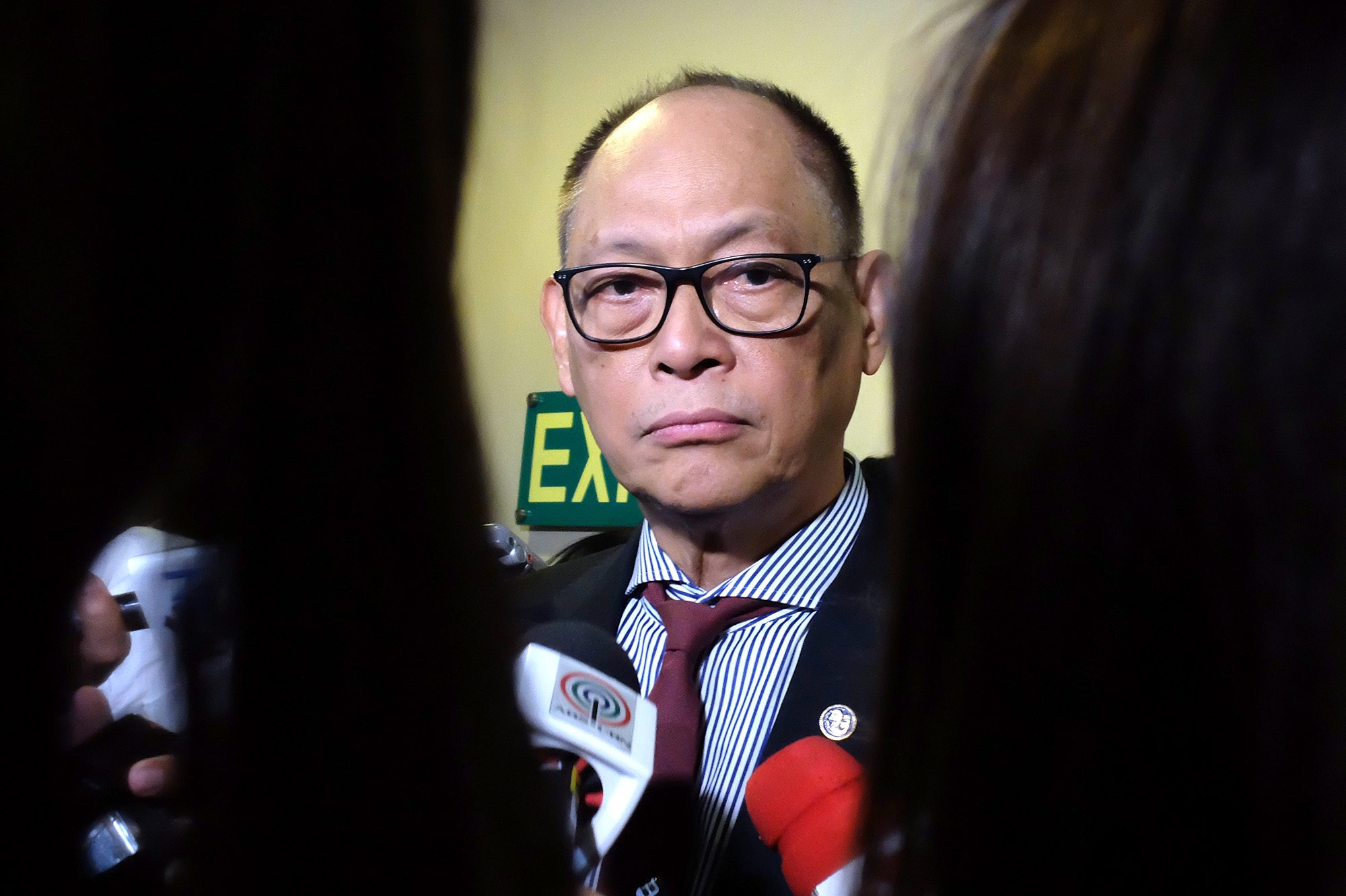SUMMARY
This is AI generated summarization, which may have errors. For context, always refer to the full article.

MANILA, Philippines – Budget Secretary Benjamin Diokno on Wednesday, January 9, thumbed down calls to implement the government workers’ salary hike ahead of the passage of the 2019 budget, saying it was “unconstitutional.”
Diokno made the statement after lawmakers urged him to implement the 4th and final tranche of the Salary Standardization Law by January 15. They claimed this could be done without waiting for the 2019 budget to be passed.
“The DBM (Department of Budget and Management) cannot implement the scheduled hike in 2019 without a legal basis. The Section 11 of Executive Order No. 201, series of 2016 said the implementation of the salary schedule is subject to the appropriations by Congress,” Diokno said Wednesday.
“Section 15 of the same executive order identify the funding source that the DBM shall be authorized to implement or adjust the compensation corresponding to the appropriations in the GAA (General Appropriations Act),” the budget chief added.
Diokno was also unfazed by the threat of House Majority Leader Rolando Andaya Jr that he would sue Diokno over the delayed implementation of the salary hike.
“If I don’t adjust the pay by January 15, then sue me. Go to the Supreme Court. But that is the law…. There’s no legal basis for that. You cannot force me to do something that is unconstitutional,” Diokno said in response to the threat.
Since Congress has yet to pass the 2019 GAA, the Philippine government is operating under a reenacted budget, which uses the funding allocations as specified in the 2018 budget. (READ: What to expect as gov’t operates on a reenacted budget)
That means workers’ salaries are still based on 2018 levels.
On the salary hike of military and uniformed personnel (MUP), Diokno said the adjustment in 2018 was sourced from the Miscellaneous Personnel Benefit Fund (MBPF) – a lump sum allocation under personnel services.
The same cannot be done this year, he said, as the extension of the 2018 budget validity only covers capital outlay and maintenance and other operating expenses, not personnel services.
The proposed budget has earmarked P121.7 billion for the salary increases of civil servants and MUP. This amount, Diokno said, “does not expressly allow” sourcing it from the MBPF.
The MBPF in 2018 only has an appropriation of P99.45 billion.
“Our best option is to wait for the budget to be passed,” Diokno said.
He added that the salary adjustment for this year will be “applied retroactively” instead.
The 2019 P3.757-trillion national budget is yet to be passed by Congress.
Senators, who received the 2019 General Appropriations Bill (GAB) late, said they expected the budget to be enacted by February. (READ: Budget deadlock: Who’s to blame?) – Rappler.com
Add a comment
How does this make you feel?
There are no comments yet. Add your comment to start the conversation.